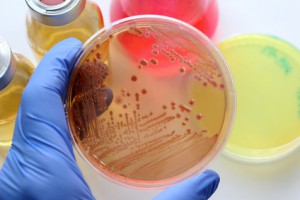 Microbial metabolites are a source of unequalled elements for in vitro assays. Sometimes neglected, these active molecules naturally provide a large spectrum of structural diversity for Drug discovery and antibiotics development programs. In this post, 6 metabolites and their respective properties are highlighted with the hope of refreshing our minds, a little bit, of the importance of such molecules in innovative research discovery.
Microbial metabolites are a source of unequalled elements for in vitro assays. Sometimes neglected, these active molecules naturally provide a large spectrum of structural diversity for Drug discovery and antibiotics development programs. In this post, 6 metabolites and their respective properties are highlighted with the hope of refreshing our minds, a little bit, of the importance of such molecules in innovative research discovery.
Active compound #1- Oligomycin A
Oligomycins induce apoptosis in a wide range of tumor cell lines. Isolated from a Streptomyces sp., oligomycins have a broad biological profile, including anti-fungal, anti-tumor and nematocidal activities. Oligomycin A (CAS 579-13-5) inhibits F1F0-ATPase involved in oxidative phosphorylation of ADP to ATP.
Active compound #2- Leucomycin A5
 Oligomycin A, Leucomycin A5, Enniatin A chemical structures - Rare micobial metabolites tebu-bio.
Oligomycin A, Leucomycin A5, Enniatin A chemical structures - Rare micobial metabolites tebu-bio.Leucomycin A5 (CAS 18361-45-0) is a rare and potent antibiotic and a major metabolite of the Leucomycin complex (family of closely related macrocyclic lactone antibiotics produced by Streptomyces kitasatoensis). Leucomycin complex is used as an animal health product for control of gram positive bacteria, gram negative cocci, leptospira and mycoplasma.
Active compound #3- Enniatin A
Enniatins are depsipeptide mycotoxins produced by several Fusarium species. They act as ionophores with phytotoxic, antibiotic, and insecticidal functions. Enniatin A (Laritin I) (CAS 2503-13-1) is one of four major analogues of the enniatin complex.
Active compound #4- Nemadectin
![IHC-P analysis of human urothelial carcinoma tissue using anti Cdk4 antibody [EPR4513] (210GTX63389).](https://www.tebubio.com/media/magefan_blog/2015/12/IHC-P-analysis-of-human-urothelial-carcinoma-tissue-using-anti-Cdk4-antibody-EPR4513-210GTX63389.-300x240.jpg) IHC-P analysis of human urothelial carcinoma tissue using anti Cdk4 antibody [EPR4513] (210GTX63389).
IHC-P analysis of human urothelial carcinoma tissue using anti Cdk4 antibody [EPR4513] (210GTX63389).Active compound #5- Ophiobolin A
Ophiobolin A (CAS 4611-05-6) is a phytotoxin produced by Bipolaris and other plant pathogenic fungi. Ophiobolin A has been shown to induce paraptosis-like cell death in human glioblastoma cells and to inhibit Calmodulin in regulating calcium.
Active compound #6- Staurosporine
Staurosporine (CAS 62996-74-1) is an unusual indolocarbazole alkaloid produced by a range of actinomycetes. Staurosporine and derivatives are "apoptosis inducers" which have anti-tumor functions, and inhibit many kinases (ex. PKC, TKs, CDK2/cyclin A and CDK4/cyclin D...).
I'd like to thank David Antonjuk (BioAustralis Fine Chemicals) for his support in editing this post.
Looking for a particular microbial metabolite, semi-synthetic analogue or small molecule for in vitro applications?
Leave a message below! I'll be pleased to support you in your research.
Interested in innovation in Drug Discovery and Cell Signaling?
You might like tebu-bio's thematic eNewsletters. You can browse them and subscribe to one (or all!) of them through the eNewsletter subscription center here.

